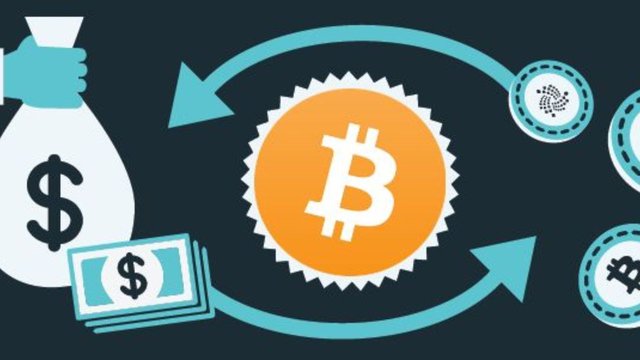Unlocking Innovation: A Comprehensive Guide to Token Development

In the rapidly evolving world of blockchain technology, tokens have emerged as powerful tools that unlock innovation across various industries. Whether you're looking to create a new cryptocurrency, launch a decentralized application (dApp), or tokenize real-world assets, understanding the fundamentals of token development is essential. This comprehensive guide will walk you through the key steps and considerations involved in developing your own token, empowering you to harness the potential of blockchain technology.
Understanding Tokens: The Foundation of Innovation
Tokens are digital assets that represent value or utility within a specific ecosystem. They can be used for a variety of purposes, including facilitating transactions, granting access to services, or representing ownership of assets. The versatility of tokens makes them a cornerstone of innovation in the blockchain space.
There are different types of tokens, each serving unique purposes:
Cryptocurrency Tokens: These tokens, like Bitcoin and Ethereum, serve as digital currencies that can be used for transactions and investments.
Utility Tokens: Utility tokens grant holders access to a product or service within a specific platform. They are often used in dApps to incentivize participation.
Security Tokens: Security tokens represent ownership of an asset, such as real estate or shares in a company. They are subject to regulatory compliance and offer investors a stake in the underlying asset.
Non-Fungible Tokens (NFTs): NFTs are unique tokens that represent ownership of digital or physical assets, such as art, music, or collectibles.
The Token Development Process: Step by Step
Developing a token involves a series of carefully planned steps, from conceptualization to deployment. Here’s a detailed look at each stage:
1. Define Your Token’s Purpose
The first step in token development is to clearly define the purpose of your token. Ask yourself: What problem does your token solve? What value does it bring to users? Understanding the utility and function of your token will guide the entire development process.
2. Choose the Right Blockchain Platform
Selecting the appropriate blockchain platform is crucial for the success of your token. Ethereum is the most popular choice due to its robust smart contract capabilities and large developer community. However, other platforms like Binance Smart Chain, Solana, and Polkadot also offer unique features that may better suit your project’s needs.
3. Design the Tokenomics
Tokenomics refers to the economic model behind your token. It includes the total supply, distribution mechanisms, and incentives for holders. Key considerations include:
Total Supply: How many tokens will be created? Will there be a cap, or will new tokens be minted over time?
Distribution: How will tokens be distributed among founders, investors, and the community? Will there be a public sale or an airdrop?
Incentives: What rewards will users receive for holding or using your token? Consider mechanisms like staking, yield farming, or governance rights.
4. Develop the Smart Contract
The smart contract is the backbone of your token, automating its functions and enforcing rules. You’ll need to write and test the smart contract code to ensure it operates as intended. Common standards like ERC-20 for fungible tokens or ERC-721 for NFTs provide templates that can be customized to fit your needs.
Ensure your smart contract undergoes a thorough audit by a reputable third party to identify and fix any vulnerabilities. Security is paramount, as flaws in the contract could lead to significant financial losses.
5. Deploy the Token
Once your smart contract is ready and audited, it’s time to deploy your token on the blockchain. This step involves submitting the smart contract code to the blockchain network, making your token live. After deployment, your token will have a unique contract address that users can interact with.
6. Launch and Promote Your Token
With your token live on the blockchain, the next step is to launch it to the public. This can involve a token sale (Initial Coin Offering, or ICO), airdrop, or other distribution methods. Marketing and community engagement are critical during this phase to attract users and investors to your project.
Consider using social media, forums, and influencer partnerships to build awareness. Engaging with your community and providing regular updates will foster trust and drive adoption.
Regulatory Considerations
Token development is not just a technical process; it also involves navigating regulatory landscapes. Depending on your token’s purpose and jurisdiction, you may need to comply with securities laws, anti-money laundering (AML) regulations, and other legal requirements. Consulting with legal experts early in the process can help you avoid potential pitfalls.
Future Trends in Token Development
The world of token development is constantly evolving, with new trends shaping the future of blockchain technology. Some key trends to watch include:
Decentralized Finance (DeFi): DeFi continues to grow, with new tokens being created to facilitate lending, borrowing, and trading without intermediaries.
Tokenized Real-World Assets: More industries are exploring the tokenization of physical assets, such as real estate, art, and commodities, offering new investment opportunities.
Governance Tokens: Governance tokens give holders voting rights in decentralized organizations, enabling community-driven decision-making.
Conclusion
Token development is a powerful tool for unlocking innovation across various industries. By understanding the fundamental steps involved and staying informed about emerging trends, you can successfully navigate the complexities of token development and bring your project to life. Whether you're creating a new cryptocurrency, launching a dApp, or exploring tokenization, this guide provides the foundation you need to succeed in the ever-evolving world of blockchain technology.